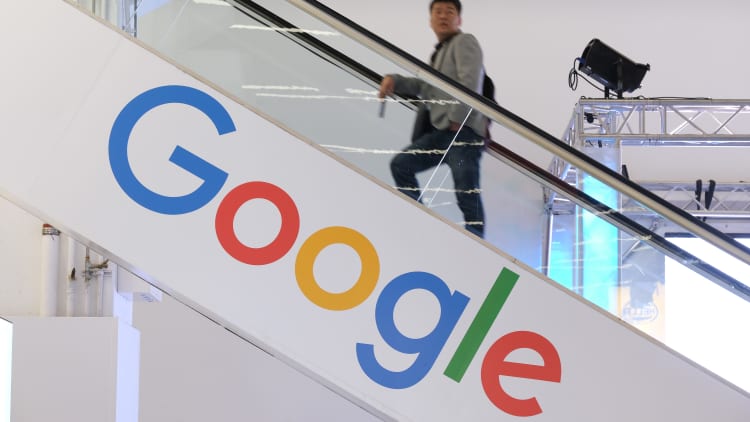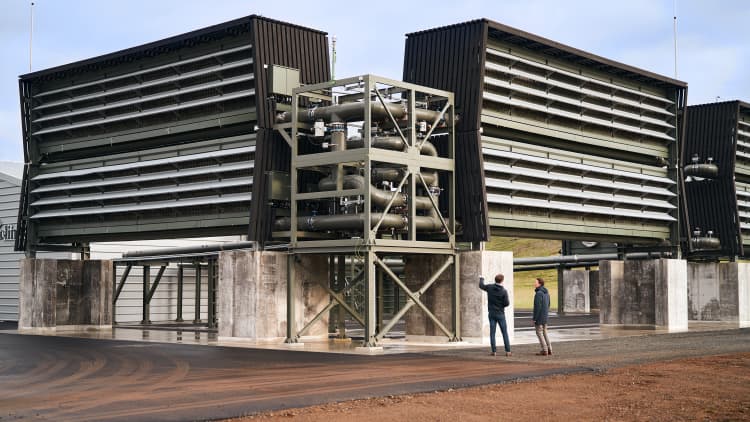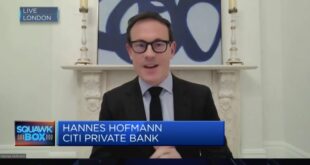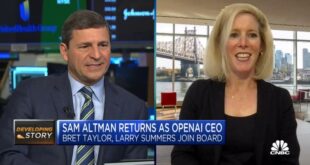Brad Smith, president of Microsoft Corp., speaks during a climate initiative event at the Microsoft Corp. campus in Redmond, Washington, U.S., on Thursday, Jan. 16, 2020.
Bloomberg | Bloomberg | Getty Images
SEATTLE — Companies are on the hot seat to respond to climate change like never before, but most corporate leaders don’t have the tools necessary to meet those pledges, said Microsoft President Brad Smith last week at the inaugural Breakthrough Energy Summit in Seattle.
“By our count, 3,470 companies around the world have signed up for a climate pledge,” said Smith. “That shows that an awareness and good intentions have literally spread around the world. Now, what’s bad: there does not yet exist the capacity for most — for almost any company — to, with confidence, turn that pledge into the progress that has been promised.”
Smith was on stage at the conference hosted by Breakthrough Energy, the climate innovation company launched by Bill Gates, who famously co-founded Microsoft in 1975 and became extraordinarily wealthy from the tech company’s success.
Smith likened the gap between good intentions and executable change to corporate pledges about diversity, which he’s been looking at for the last couple of decades.
“A lot of times when people are enthusiastic and busy, they believe that their good intentions will turn into progress, almost deceptively so,” Smith said. “You’ve got to be able to count, you’ve got to be able to measure, and you’ve got to put the systems and people in place to drive the change that you’ve promised to make. And what’s bad at the moment is there is a dearth of capacity across the board.”
One problem is the inconsistency in nomenclature and a lack of general knowledge about the fundamentals of climate emissions tracking.
For example, Smith said it is a “constant effort” to educate people about the three categories of emissions. In particular, scope three emissions, which include all the activities and assets in a company’s value chain, tend to be the largest category — and the hardest to track.
Once emissions are counted, a company needs to track them. That stage of the industry, often called carbon accounting, is also “in this incredibly nascent stage,” Smith said, and companies don’t have enough workers with the right skillsets to help accelerate their progress, Smith noted.
As the industry matures, tools will emerge to help with tracking, but with so much uncertainty today, some companies avoid making climate pledges at all, according to Greg Guyett, co-CEO of global banking and markets at HSBC.
“What I’m starting to see now among our clients is a reticence about making commitments, rallying the troops to do something, because they’re worried about getting sued, because they can’t measure it appropriately,” Guyett. “I think we’re starting to see a pullback from making these kinds of commitments.”
Brad Smith, president of Microsoft; Irina Gorbounova, head of XCarb Innovation Fund at ArcelorMittal; and Greg Guyett, the co-CEO global banking and markets at HSBC join Rich Lesser, the global chair at Boston Consulting Group on stage at the Breakthrough Energy Summit in Seattle.
Cat Clifford, CNBC
‘A license to operate’
Even while companies are often muddling their way through counting, tracking and reducing emissions reductions, stakeholders are keeping the pressure on.
For Microsoft, getting started on climate “was a combination of hearing from employees, potential employees, investors, and customers that this was important to them,” said Smith.
But now, it’s more than that. It’s becoming necessary for the long-term survival of the companies themselves.
“This is almost becoming an indispensable part of the license to operate,” Smith said. “If you think about what we do as a company — providing cloud services, data, AI, digital infrastructure — it involves this massive effort to build data centers around the world, all of which need to run on electricity. And so when you really think about it, it is becoming clear that we will not be able to expand to meet our customers needs, unless we are bringing to the grid more renewable energy.”

Currently, especially in Europe, energy is in high demand. For Microsoft to expand its business, it has to be bringing more clean energy to the grid so that the company isn’t adding to the energy crunch.
“The worst thing that can happen for us, or any industry, is to see some of the headlines that have appeared in the U.K. over the last six months: ‘There’s a shortage of electricity, we have to decide whether people get to use it or computers,'” Smith said. “The people will win in any democracy. We have to be thinking ahead.”
HSBC has a similar approach, Guyett said.
“If you think about our footprint in places like India and Southeast Asia, you think about the natural disasters that have happened, and you think about the portfolio of credit that we have in those markets, it’s pretty clear that to not just have a license to operate today, but to ensure that we’re in business in five years, in 10 years, we’ve got to be part of the answer in this transition to change the natural environment,” Guyett said.
The urgency surrounding climate change has come to a point just as the Russian war with Ukraine and persistent inflation have sent energy prices higher, particularly in Europe. But the specific nature of the Ukraine war has made solving the climate crisis more pressing, even if that’s not because of global warming.
“In some ways a silver lining, if you can call it that, of the of the situation that we’re currently have around the world is that the transition to more renewable energy and less carbon actually is not just about climate now, it’s about energy security,” Guyett said.
Clean, renewable energy is democratically available, whereas fossil fuels are distributed in geographic pockets.
“You can always defer the purchase of an electric vehicle, or the company can always defer the purchase or investment in renewable energy today because it maybe it’s more costly, but I think when it becomes about availability and energy security, it becomes something that’s really very clearly not optional,” Guyett said.

 EU News Digest Latest News & Updates
EU News Digest Latest News & Updates


